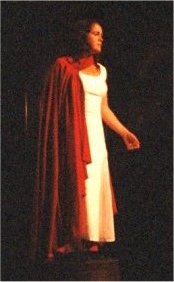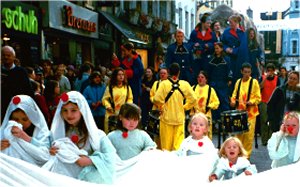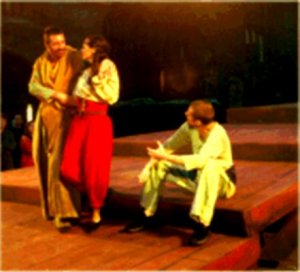As I listen to people in rural and small communities speak, it is evident from what they say and the intensity in which they are saying it, something is wrong. These people know it is there but they don't understand what it is. They know their community has changed but they can't always identify how. They know they are uncomfortable with the change but they can't put their finger on what it is that bothers them and causes their discomfort. This "values collision" is the presence of a forced choice that leaves them no room to believe what they have always believed.
This values collision is the contradictory values that have been present
in our society since its inception. These are opposing values but present
nonetheless. The
rural and small communities all across this nation have been places where
this collision has been present, but avoided.
Rural and small communities have always had an enormous capacity to accommodate and adapt to opposing values because they have found a way to keep them in balance, in check. Unfortunately, this balance has been broken and it has been broken because of forces outside their control. I have come to identify these outside forces as four different collisions. I have seen them in communities all across southern Illinois and the needs assessment verifies their existence.
These collisions are:
1) Process versus product;
2) Sacred versus secular;
3) Individual versus community; and
4) Intolerance versus inclusion.

County Galway Community Arts Network.
Those of us living in rural and small communities increasingly find ourselves caught in the middle of these four values collisions. We no longer have the luxury of avoiding the discomfort of this conflict because we can't escape the influence of the world outside our community. A great portion of my work at the Center for Community and Cultural Studies is devoted to understanding these "values collisions" and finding ways to overcome them. The fact is, people are not only uncomfortable with what is happening, they are afraid of it, terrified by it, and overwhelmed by it.

County Galway Community Arts Network
